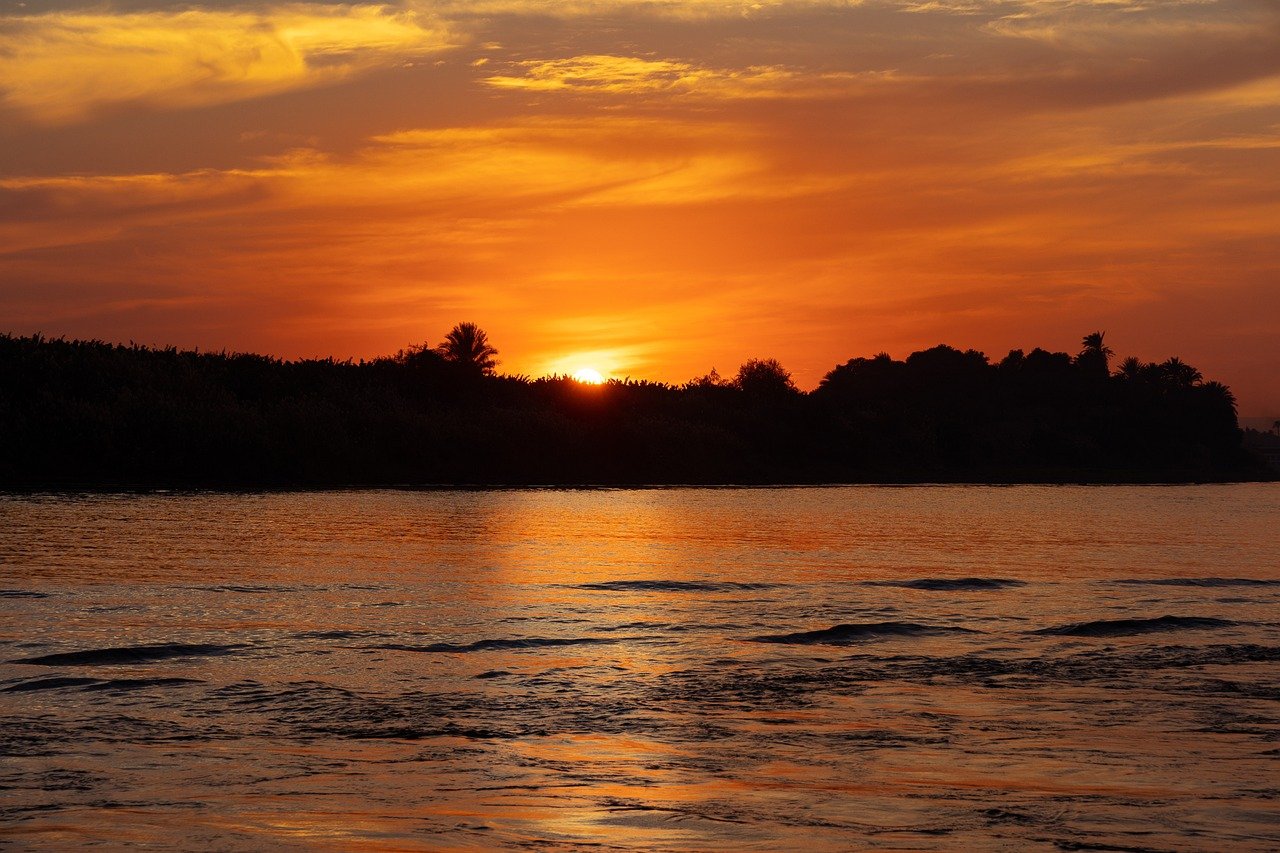
Nile River
Rights of Nature for the Nile River Basin
The Nile River Basin, the world’s longest river, stretches through 11 countries in Africa and supports millions of people. One of the world’s most biodiverse regions, it is severely threatened by climate change, which is causing increasing disasters and worsening water scarcity for the region’s fast-growing population. Destruction of wetlands, water and air pollution, deforestation, sand mining, and other issues also threaten the environment in the Nile Basin and contribute to destructive climate impacts. At the same time, there has been progress on some initiatives related to transboundary water management, reforestation, wetland regeneration, and sustainability, but these efforts require expanded awareness and support.
Despite the increasing threats to transboundary water resources in the Nile Basin, the region’s media coverage on management of natural resources remains limited and lacks technical analysis of scientific findings related to the river or legal movements that impact its status. There is a gap between the data published by local researchers and its translation to general public knowledge through the media. Also, according to the 800+ journalists in the InfoNile Network, many media houses do not invest in science journalism due to the view that such stories do not attract audiences or advertisers. The journalists also lack skills in science and data journalism, as well as resources for in-depth stories. Research by both IHE-Delft and WJA-InfoNile has also found poor communication efforts on the side of the scientists. The public is thus left with limited awareness about the status and importance of conserving transboundary natural resources such as the Nile River and its ecosystems.
ELC Co-sponsors Training Program on Rights of Nature for InfoNile Journalists
With this background in mind, in the spring of 2024, Earth Law Center (ELC) entered into a year-long collaboration with water journalists from the InfoNile program. Co-sponsored by ELC and Observatoire International des Droits de la Nature (International Observatory on the Rights of Nature), InfoNile delivered a five-day online training program for Nile River journalists, which was held March 18-21st, 2024, in conjunction with World Water Day (March 22nd), and which focused on the Legal Personhood of the Nile River.
The first four days of training included:
an introduction to the concept of legal personhood for natural entities
background on the global movement for the Rights of Nature
advances on Rights of Nature at the international level
how the media is covering the movement
the role of youth activism in establishing the Rights of Nature
experiences from movements within Nigeria, Tanzania and the cross-boundary initiative to recognize the rights of the Nile Basin
the importance of the integration of the Rights of Nature in Africa
The topics were led by legal and policy experts on Rights of Nature from the UN Harmony with Nature Programme and affiliated NGOs, movement leaders within Africa, and Ministers of government. ELC's Myra L Jackson was a member of the core team that established the training proposal with the editorial help of Marsha Moutrie. Myra also developed and presented a training session and supported the daily Q&A sessions during the weeklong training program. And ELC’s Irikefe V. Dafe, CEO/Founder of the River Ethiope Trust Foundation shared his harrowing experiences shepherding the Rights of Nature Initiative in Nigeria and how ELC helped him to protect the River Ethiope.
Program Objectives
To create and inspire a motivated, informed, engaged and committed learning community of journalists in the Nile Basin promoting the rights of Nature
To support a group of journalists in the Nile Basin with skills, knowledge, networks and resources to report impactful stories on the rights of Nature in the Nile River basin
Partners

Header: Unsplash / USGS; Resources: Unsplash / Ruben Hanssen; Footer: Pixabay / Ramon Perucho



